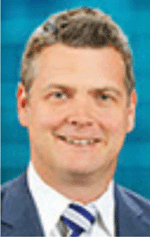Working together to establish a world-class mercury recovery facility for the Australian liquefied natural gas industry
Jarrod Pittson A C and Jeff Kerferd BA Woodside, Mia Yellagonga, 11 Mount Street, Perth, WA 6000, Australia.
B Contract Resources, 9 Marriott Road, Jandakot, WA 6164, Australia.
C Corresponding author. Email: jarrod.pittson@woodside.com.au
The APPEA Journal 60(2) 506-508 https://doi.org/10.1071/AJ19231
Accepted: 17 March 2020 Published: 15 May 2020
Abstract
Mercury is a heavy metal that is widespread and persistent in the environment and, even at low concentrations, poses a risk of adverse effects to human health and ecosystems. Mercury is commonly found in hydrocarbon reservoirs. Approximately 1.5 tonnes of mercury arrive at the Karratha Gas Plant each year in feed gas from offshore platforms. Because mercury reacts with aluminium, it must be removed from the liquefied natural gas (LNG) process before the main cryogenic heat exchangers, which comprise ~1000 km of aluminium tubing. For over a decade mercury has been safely removed from the Woodside LNG process and sent to Switzerland for recovery of metals and complete recycling of waste constituents. Here we present the outcome of a 3-year collaboration between Woodside and Contract Resources that resulted in the opening of Australia’s first industrial-scale state-of-the-art mercury recovery facility in Karratha in July 2018. The AU$20 million plant is the largest of its type in the Southern Hemisphere and was underpinned by Woodside providing foundation funding through a long-term contract. The facility can handle all mercury-contaminated waste produced by the Australian oil and gas sector now and into the foreseeable future. An unparalleled project delivery taking 3 years to implement from initial discussion to the first batch of waste being processed in Karratha. This paper illustrates the collaboration, innovation and acceleration that occurred to deliver a sustainable outcome for Australian LNG.
Keywords: circular economy, collaboration, cradle to grave, oil and gas, recycling, technology, waste.

Jarrod Pittson is the Business Manager – Pluto, FPSOs (Floating Production Storage and Offtake) and Wheatstone for Woodside Energy, based in Perth, Australia. Prior to this Jarrod was General Manager Environment for Woodside. During his tenure in this position, Jarrod was responsible for providing strategic direction and leadership in environmental management and climate change across the Woodside value chain, including effective application of environmental standards and systems, delivery of environmental approvals and coordinating Woodside’s response to climate change. Jarrod has spent over 20 years in the environmental field, with a background in policy, pollution prevention, emissions reduction, environmental approvals and stakeholder engagement. Prior to joining Woodside in 2006, Jarrod spent 12 years in downstream chemical production, where he held a variety of environmental roles. |

Jeffrey Kerferd is the Resource Reclamation Manager for Contract Resources, based in both Perth and Karratha, Australia. Jeffrey has been responsible for managing the development of Contract Resources Mercury Recovery Facility from inception to operations. With a background in safety, Jeffrey was able to ensure that industry best safety and environmental practices were integrated into the facility’s design and operation. Jeffrey joined Contract Resources in 2012 as part of its Graduate Management Program and has gained experience in both the upstream and downstream oil and gas operations in Australia, New Zealand and the US. |


